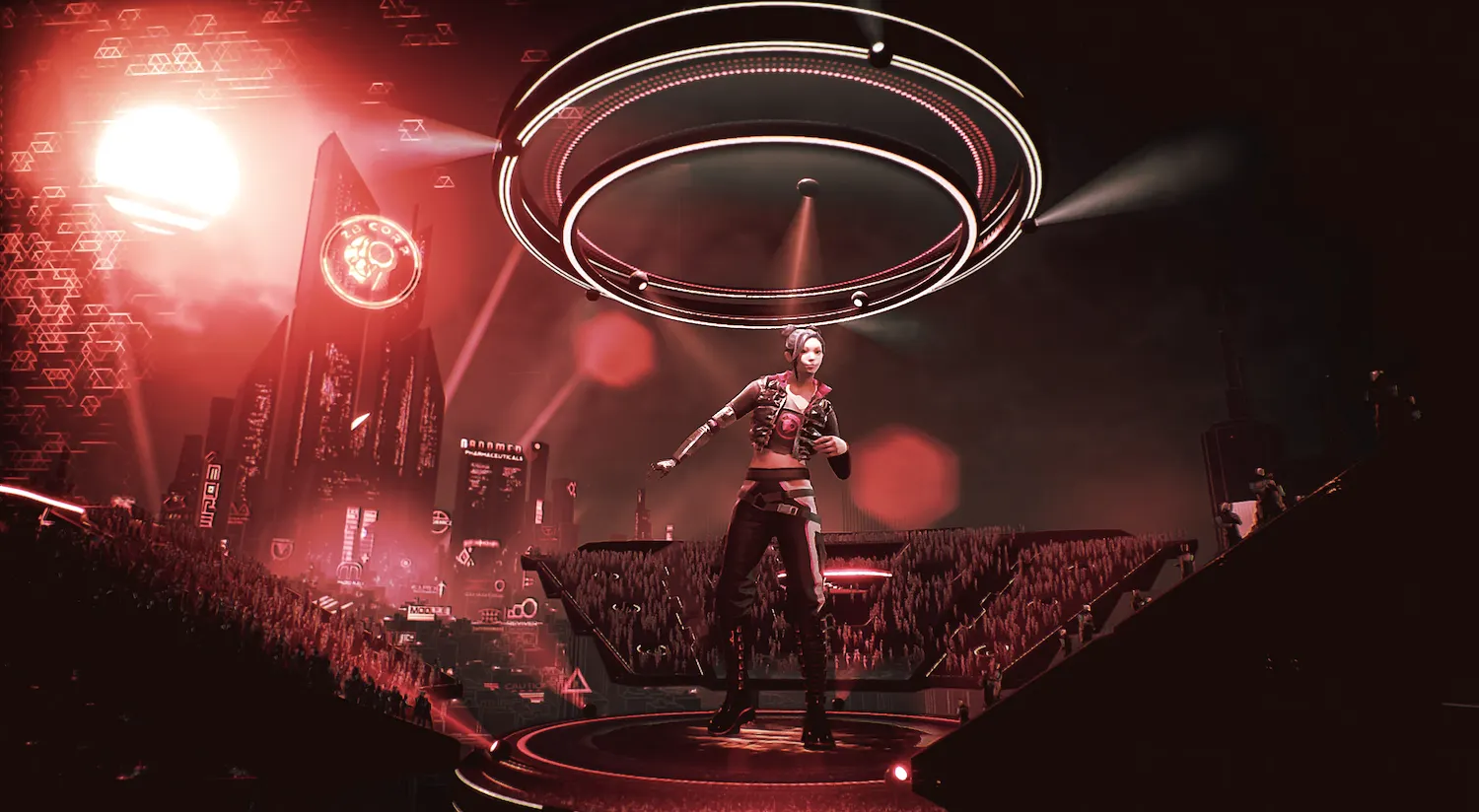In brief
- Improbable has launched M², a Web3 infrastructure initiative to provide the tech for interconnected metaverse worlds.
- M² has raised $150 million in funds from Andreessen Horowitz, Softbank, and others at a $1 billion valuation.
Metaverse hype has exploded in recent months since Facebook’s Meta rebranding, but the vision of an immersive, experiential future internet could be years away from taking shape at scale. It will require significant infrastructure, and gaming tech startup Improbable hopes to lead the charge with a new initiative and considerable funding.
Today, the London-based Improbable revealed M² (MSquared), a new entity that will focus on developing the Web3 tech needed to not only bring large-scale metaverse worlds to life, but also allow interoperability so users can carry over NFT assets and items between worlds. NFTs are unique crypto tokens that are used to demonstrate ownership over digital items.
M² is independent from the main Improbable company, and it has raised separate funds as well. The new entity has raised $150 million at a $1 billion valuation, making it the latest in a long line of crypto unicorns, or companies in the space valued at $1 billion or more.
Andreessen Horowitz (a16z) and Softbank co-led the funding round, which also featured participation from Digital Currency Group (DGC), Ethereal Ventures, Mirana, SIG, and CMT.
The metaverse refers to a vision of the future internet in which users will interact via 3D avatars across immersive environments, which will be used for work, play, socializing, shopping, and more. Ethereum-based games like Decentraland and The Sandbox are seen as early examples of what a broader metaverse could become.
While crypto builders envision a metaverse built around interoperable environments that let users carry their NFT assets—such as avatars, items, apparel, and more—between worlds, that may not be the case for all firms attempting to build the metaverse. For example, it’s unclear exactly how open and interoperable Facebook’s metaverse will be.
M² is apparently built with interoperability in mind. The initiative combines Improbable’s Morpheus gaming technology—which reportedly enables richly detailed online worlds with more than 10,000 live users—with new Web3 tools and tech.
It’s designed to bring metaverse worlds to life, but is built to work with “existing worlds as well as new projects,” per a release. The embedded trailer below shows an example of the technology at work, with well over 1,000 players all interacting together in a shared game world.
Exactly how M² plans to bridge across metaverse worlds remains to be seen, however. Improbable CEO and co-founder Herman Narula described current blockchain bridges to Bloomberg as “a fairly crude solution,” and said it would release a whitepaper regarding its cybersecurity plans.
Cross-chain bridges have been a growing target for attacks in recent months. Late last month, the bridge that connects play-to-earn game Axie Infinity’s Ronin sidechain to the Ethereum mainnet was exploited for $622 million worth of cryptocurrency. In February, the Wormhole bridge between Ethereum and Solana was hacked for $320 million.
According to Bloomberg, M² investors will eventually receive crypto tokens as a result of the funding, but it won’t represent a collective majority of the supply. Narula told the publication that it intends to let the community of users govern the coming platform, in a nod towards progressive decentralization.
Andreessen and Softbank each previously led a round of funding for Improbable—the main entity, not this new M² initiative—which was valued at about $2 billion in 2017 after a $502 million Series B round.
Following that funding, Improbable struggled to execute on its SpatialOS gaming infrastructure, and saw multiple games shut down after launching with it. Narula admitted to Bloomberg that its earlier technology was “more challenging to operate than it needed to be.”

